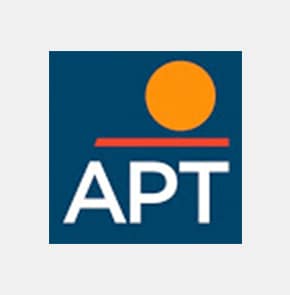Get Matched With Political Science Programs
What Does a Career in Political Science Entail?
A career in political science requires excellent research and analytical, not to mention critical thinking, skills to enable you to forecast political, social, and economic trends. As a political scientist you might evaluate the effect of laws and policies on people, businesses, or government; collect and analyze survey data; or write and present research results. While many political scientists run for a political office you may also find work in a complementary field such as public relations, business, urban planning, campaign consulting, or journalism.
Political scientists study and become fluent in many topics throughout their political science degree program such as different political structures, American politics and U.S. political parties, international politics, globalization, political theory, political processes, political analysis, critical thinking, and research methods. There are four main areas of political science research and political science curriculum: political theory, comparative politics, national politics, and international relations. Students may find themselves prepared for various career paths once they graduate with a degree in political science, or even a political science minor, including:
- Public Policy Analyst
- legislative assistant to one of the major political parties
- Public Relations Specialist
- Analyst for Political Issues
- Non-Profit or Public Administration
- Communication or Social Media Manager
- And more

Components of a Successful Career in Political Science
Besides an avid interest in politics, you'll need to have the basic skills required to learn and succeed in a political science major. Because research, analysis, and writing of political issues and other critical subjects are the core skills in a political science degree, you should enjoy and have an aptitude for these talents if you choose to explore a political science major, whether or not you think you'll continue to graduate school.
To prepare themselves for successful political science careers, students need to decide what area they would like to work in so that they can plan their studies accordingly, such as international relations or researching comparative politics. While many earn their Bachelor of Science degree in Political Science before continuing on to law school, some students may plan to work in the federal or state and local government sectors. Likewise, you may wish to go into business or become a policy analyst or a journalist who covers the political spectrum. If students wish to become a member of the faculty and teach political science majors themselves, they'll need to earn a higher degree level, such as a master's degree, from their chosen graduate school.
Featured Online Programs
How to Become a Political Scientist
What can you do with an Online Political Science Degree?
 Besides the obvious goal of running for, or working in, a government sector, many students choose to earn their online degree in political science after high school as a precursor to entering law school, as it gives a solid foundation to earning a law degree and opens up a variety of career paths. Because the skills you'll learn are highly marketable there is a wide range of career fields you'll be qualified to pursue. Here are some examples of careers for political science majors:
Besides the obvious goal of running for, or working in, a government sector, many students choose to earn their online degree in political science after high school as a precursor to entering law school, as it gives a solid foundation to earning a law degree and opens up a variety of career paths. Because the skills you'll learn are highly marketable there is a wide range of career fields you'll be qualified to pursue. Here are some examples of careers for political science majors:
- Advocate for Human Rights
- Business Professional
- Campaign Manager
- Government Relations Manager
- Journalist or Writer
- Legislative Assistant
- Lobbyist
- Magistrate
- Officer in Foreign Service
- Policy Analyst
- Reporter
- Teacher or College Professor
- Veterans Affairs Policy Maker
- International Affairs Policy Maker
Typical Online Political Science Degree Requirements
To earn a bachelor's degree online in a political science major, you'll need to complete 120 semester credits, 60 of which are included in your associate degree online. If you continue on to earn your master's degree online, you'll need to earn another 36 to 54 credits depending on your field of study and whether or not a thesis is required.
Academic Standards for Online Political Science Degree
Like all online degrees, to successfully complete a degree in political science, students will need to meet the minimum grade point average (GPA) standards to pass each course they enroll in. While schools’ standards may vary, they usually require a minimum 2.0 GPA in each class.
Although you may graduate with a minimum GPA, you should keep in mind potential employers usually request school transcripts and use your GPA as one of their hiring criteria. In addition, a higher GPA will make it easier for students to be accepted into an online master's degree program from any graduate school.
If you plan to go to law school you'll be required to pass the Law School Admission Test (LSAT); for other graduate degree programs, you'll most likely be required to take the Graduate Records Examination (GRE).
Exam/Experience Needed for Online Political Science Degrees
 Although there are no certification or exam requirements for online political science majors, experience in the field is highly desirable. Internships and work experience are highly regarded by employers. If you can't complete an internship or work in your preferred field, you should consider volunteering for a related organization.
Although there are no certification or exam requirements for online political science majors, experience in the field is highly desirable. Internships and work experience are highly regarded by employers. If you can't complete an internship or work in your preferred field, you should consider volunteering for a related organization.
Here are some examples of political science internships you might apply for:
- Executive Departments
- Executive Agencies
- Public Policy Advocacy Firms
- Lobbying Firms
- Non-Profits
- Law Firms
- Legal Institutions
- Print Media Outlets
- Broadcast Media Outlets
- Marketing Firms
- Public Relations Firms
You can also look for internships in political organizations if you study political science, such as: state governor or lieutenant's office, state legislature or agencies, or federal legislative offices.
Online Political Science Associate’s Degree
Your online associate degree includes approximately 36 hours of core classes in general education. For your bachelor's and above, you'll take more specialized coursework, such as the following
Online Associate Degree sample courses
- American Politics
- Policy Issues
- Political Theory
- Comparative Politics
- Political Concepts
- Political Behavior
- International Relations/International Affairs
- Current Events
Depending on your field of interest you'll also take online classes in complementary subjects such as:
- Anthropology
- Economics
- Geography
- History
- Law
- Philosophy
- Psychology
- Sociology
Online Political Science Bachelor’s Degree
For an online bachelor's degree in political science you can choose either a Bachelor of Arts (BA) or Bachelor of Science (BS) program. Basically, a BA focuses on the humanities and social sciences and a BS will focus on the mathematics and science areas of politics. Here are some sample courses for a BS in Political Science degree:
Find Online Political Science Schools
Online bachelor’s degree sample courses
- Democracy and Citizenship
- Communism, Islamism, and Democracy in Central Asia
- Contemporary Civil Wars
- International Relations
- Issues in American Public Policy
- Political Ideas and Political Behavior
- Political Tolerance in the United States
- Quantitative Analysis in Political Science
- Political Liberal Arts Sciences
- Topics in International Relations and Foreign Policy
- Topics in Political Theory and Political Processes
- U.S. Foreign Policy
Some Online Political Science Concentrations
Global Politics: international relations and emphasis on modern politics throughout the world; careers with the state department, in research, and as policy advisors.
Public Policy: the impact of government policies on the nation and communities, tracking policy outcomes; careers such as legislative assistants, policy analysts, and advisors.
Comparative Politics: the comparative method of developing systems of government or policies; careers such as political analysts and scientists as well as state department positions.
American Politics: focuses specifically on the policies, politics, and development of the American government system; careers in government, research, congressional aides, and campaign research.
Environmental Politics: focuses on the relationship between politics and environmental movements, issues, and groups either nationally or on a global scale; careers with environmental groups and organizations or the Environmental Protection Agency (EPA).
Online Associates, Bachelors, Masters Costs
The total cost of your online Bachelor degree will depend on whether you already have your Associates degree and if so whether your credits are transferable, the university or college you choose to attend, and the amount of grants and scholarships you are awarded. In general, in-state public schools have the lower cost compared to out-of-state and private schools but much, or all of, the tuition may be offset by grants and scholarships.
Keep in mind there are other costs added to tuition. Registration fees, books, lab fees and materials, travel, and housing will also need to be covered, and if you're not working full-time, you'll also need to cover the basic costs of living. Here's a chart to give you an idea of the average tuition for each degree level:
Online Concentrations
| Degree | Public School | Private School |
|---|---|---|
| Associate | $7,140 | $29,174 |
| Bachelor | $14,280 | $58,348 |
| Master | $30,000 | $120,000 |
Earning Potential for Political Science Degree Occupations
Political scientists as a whole earn excellent wages. That being said, your salary outlook will depend much on your field of concentration as well as your occupation within the field. In general, as with most careers, the lower your degree achievement, the lower the annual salary range you can expect to earn. Likewise, your level of experience will correspond with your pay grade. For example, the Bureau of Labor Statistics (BLS) shows a median annual wage for political scientists in 2017 as being $115,110; this amount would generally reflect a person with a bachelor's political science degree in a middle-ground employment field such as a professional or technical field.
Search Programs Offering Political Science Majors
Political Science Fields of Study Median Salaries
| Field | Entry-Level Median Salary | Mid-Career Median Salary |
|---|---|---|
| Government | $17,480 | $25,630 |
| Business | $56,400 | $102,490 |
| Analysis | $34,510 | $63,230 |
| Journalism | $26,510 | $62,910 |
- Government: management or assistant positions to legislators of local and state governments
- Business: promote or defend the business interests of a company or corporation, usually in regard to interstate or global relations.
- Analysis: devise, implement, and analyze data methods to predict possible and probable outcomes; present data in report, chart, and graph form so it is easily understood by the layman.
- Journalism: Write or report on news for the general public, usually specializing in a certain field or locale.
Political Science Salaries by Occupation
Within the fields of political science there are many different occupations, and again your salary will depend on your education level and your experience. This is why it's important to choose your field of concentration before choosing your future occupation: your salary will grow with your education and experience and you don't want to spend eight years in a field you hate if you can check the field out first as a student or intern. Here's a look at occupations within the field examples:
-
Government - Economist:
formulate plans for policies by researching, collecting data, and preparing reports to address specific economic impacts of proposed future policies. May examine similar policy outcomes in other states or countries and the long-term effect or outcome on a global basis; may work on a local, state, or federal level. -
Business - Public Relations :
Create and maintain the public image of a company, corporation, or political figure to ensure the public sees the subject in a favorable light at all times. May create media and social media information releases, programs designed to show the company or person in a favorable manner, or otherwise increase the public awareness of the business or person. -
Analysis - Market Research Analyst :
gather information on a local, state, national, or global level to determine the feasibility of a service or product; may analyze data from a competitor, sales, or similar distribution or marketing methods. Analyze data and create reports, graphs, and charts in order to present the results to the corporate board of directors or similar business owner. -
Journalism - Reporter or Correspondent :
research and correlate facts and information by observation, interview, or investigation, as well as critical thinking, in order to present newsworthy events in a timely fashion. May work for a news magazine, radio station, or newspaper on the local, state, national, or global level; specialize in a specific area such as the economy, White House, or a foreign location or area.
Median Annual Salary by Occupation
| Occupation | Entry-Level Salary | Mid-Career Salary | Late-Career Salary |
|---|---|---|---|
| Economist | $58,600 | $94,800 | $116,000 |
| Public Relations | $40,700 | $58,400 | $66,700 |
| Market Research Analyst | $49,700 | $63,900 | $65,000 |
| Reporter/Correspondent | $54,200 | $75,500 | $127,500 |
Important Questions to Ask (FAQ)
How long does it take to earn a Political Science bachelor's degree online?
An online bachelor's political science degree is considered a four-year degree. However, if students have already earned an associate degree and they take a full-time class load, it may take as little as two more years to complete bachelor's with political science majors. If you're taking a half-load of courses, it will take you approximately four additional years to complete your political science program.
Find Your Online Political Science Program
How much does this degree typically cost?
The cost of your online degree will depend entirely on your school of choice and any financial aid you may qualify for. According to the US Department of Education, the total cost for a political science degree averages between $22,000 and $50,000, but some of that cost can be offset by grants and scholarships.
Potential Sample Coursework
Although your specific coursework will be determined by your school of choice, as an example, the following classes are required by the University of Maryland:
- Introduction to Political Science
- Introduction to Political Theory
- American Government
- Comparative Politics and Government
- Global Political Economy
- Terrorism, Antiterrorism, and Homeland Security
- Law, Morality, and War
- Global Terrorism
- American Foreign Relations
- Advanced Seminar in Political Science
Does the online school have the major(s) you’re considering?
You can't major in political science at a school that doesn't offer a political science major, so this should be a priority when choosing a school. In addition, check to see whether the school offers a graduate program or a concentration in a niche you are interested in, such as international relations. If it doesn't, verify your bachelor's political science degree program credits will transfer to another school in case you decide to earn your master's degree at a later date.
How many students graduate “on time,” in four years?
 Look closely at the school's website and check the graduation rates. While you may plan to attend part-time, which will take more than four years, the four-year graduation rates will give you an indication of how much support you'll get once you enroll. A low graduation rate may be an indication the school is more interested in enrolling students than in helping them succeed.
Look closely at the school's website and check the graduation rates. While you may plan to attend part-time, which will take more than four years, the four-year graduation rates will give you an indication of how much support you'll get once you enroll. A low graduation rate may be an indication the school is more interested in enrolling students than in helping them succeed.
What kind of accreditation does the online program hold? How is it regarded in the field?
Accreditation means the school has reached and maintained national standards of quality education. Both national and regional accreditation are valid, but you want to check with any nationally accredited school to make sure that credits earned there can be transferred to the graduate program of your choice. Some national accreditation is not accepted by regionally accredited institutions. Look up the acronym of the accreditation your school of choice holds and make sure it is widely accepted by grant and scholarship programs as well as employers in your field of choice. The US Department of Education has approved six regional agencies within the US.
Potential Scholarships to Apply For
There are many scholarships available for political science majors, so you should schedule time to apply for as many as possible in order to lower the cost of your education. Scholarships and grants can cover most or all of your education, including living expenses so you shouldn't neglect the opportunity to finance your political science degree program online. Here are samples of scholarships for political science students:
-
Benjamin A. Gilman International Scholarship
Deadline: October 2
Sponsored by the U.S. State Department, this program allows students with limited finances to intern or study abroad worldwide. In 2018, the Gilman Scholarship was awarded to over 2,900 students in amounts of up to $5,000; if you study a foreign language while abroad you may qualify for an additional $3,000 award. Although the focus is on national security and economics, the Gilman is open to a wide range of studies, including those earning a degree in political science, and also gives preference to Veterans.
-
Educational Partnership Program (EPP) Undergraduate Scholarship
Deadline: January 31
If you plan to attend a Minority Serving Institution (a school with focus on minority populations such as Black, Hispanic, or Tribal, as defined by the US Department of Education) you may qualify for the EPP scholarship, which awards monies up to $45,000 over two years. Students must work an 11-week (paid) summer internship as well as training at NOAA in Silver Spring, MD to qualify.
-
Government Finance Officers Association of the United States and Canada (GFOA)
Deadline: January 4
if political finance is your focus you may qualify for one of several scholarships sponsored by the GFOA. With specific scholarships for part-time, full-time, and graduate degree students and minorities, the GFOA awards over $90,000 per year to students interested in a career within the field of government finance. As an example, the ‘Minorities in Government Finance Scholarship’ awards $10,000 to a minority finance undergraduate or graduate student each year.
-
The Daughters of the American Revolution (DAR)
Deadline: Varies
oversee four separate scholarship programs for political science, some of which are renewable (for example, $2,000 per year up to four years). No membership is required, only proof of U.S. citizenship. There are other different requirements for each scholarship; one is for high school seniors only.
The American Political Science Association, The National Science Foundation, The National Endowment for the Humanities, and the Social Science Research Council are other national organizations that offer a wide range of scholarships, grants, and fellowships for various fields within the realm of political science. Those earning a degree in political science should check them out.
Professional Organizations
Once you begin your political science program, you should plan to join one or more organizations devoted to your future career. Beyond the subject of political science as a whole, you can join a national or international association that is geared towards your concentration, such as international politics. This will give you an edge on finding resources to help you during your education and throughout your career and help political science majors learn the specialized knowledge they need to continue on to graduate school. Here are a few organizations dedicated to political science:
Find Online Political Science Schools
- APSA
- APT
- IPSA
- RPSA

APSA
American Political Science Association (APSA)
the largest organization in the country, the APSA offers students a reduced membership rate as well as other benefits such as professional support, networking, and an expansive list of resources. Over 50 special interest groups can be joined within the organization, so you can also find opportunities such as seminars and conferences in your concentration.

APT
Association for Political Theory (APT)
If you enjoy the intellectual aspects of politics the APT is the place to be. Although the organizations focus is on graduate and doctoral students, they embrace scholars from all stages of education. Journals, blogs, resources, discussions, and a national conference focus on the theory and philosophy of politics.

IPSA
International Political Science Association (IPSA)
If world politics is your passion you should consider joining the IPSA. Focusing on international political affairs, IPSA offers access to the International Political Science Review, worldwide events, academic services, and job postings, as well as discounts on a wide range of publications and services. Student membership is offered at a deep discount.

RPSA
Regional Political Science Associations(RPSA)
You should also join an organization in your geographical area to gain regional benefits. The Southern Political Science Association (SPSA), Northeastern Political Science Association (NPSA), and Midwest Political Science Association (MPSA) offer conferences, publications, networking opportunities, and scholarships to members and students in their respective regions.
Choosing an Accredited College
Your first step in narrowing your choice of schools should be to carefully check the accreditation of each college. Many schools list their accreditation as an acronym, so research will be required to verify the accrediting organization is legitimate and recognized by the Department of Education. You can go to the federal education website to verify the school and its accreditation are legitimate and accepted for federal financial aid, which is the standard used by most scholarship and grant awards.
Online vs. On-Campus vs. Hybrid
Each type of education has its pros and cons, so choose the format that will best meet your personal needs. Online courses are convenient because you can work anywhere, and the time is flexible, but you won't have direct peer or professor interaction, or access to campus perks such as the library, labs, and onsite seminars. On-Campus, or traditional brick-and-mortar classes, give you a face-to-face learning experience and access to everything a campus has to offer but have rigid class schedules as well as commute times. Hybrid schools may be the wisest choice for you, because you can switch between the first two as your class load and personal needs change from semester to semester. You can take some or all courses online while having access to the library, seminars, conferences, and other perks of campus life.
Frequently Asked Questions
Should I choose political science or public administration?
These two degrees are closely related. Both can give you access to help create policy and to work in government positions. So, how do you choose? Well, whereas both of these degrees can get you a seat at the table when it comes to creating policy, public administration is the degree that will let you help to decide how that policy is implemented. By being in charge of the agencies or departments that will have to follow those new policies, you will help to decide what best practices look like. Public administration takes an active, pragmatic viewpoint, while political science is mostly theoretical.
Why might someone choose to earn a political science degree?
Whether you are interested in understanding more thoroughly how our nation and others formed, how decisions are made at the highest level, the theories and modes of thinking behind our political theater or that of other countries; political science can give you insight into all of that. You’ll understand the important policies that affect everyone, and it will give you skills in analytics that can be useful in your professional and personal life.
Does the College Have Post Graduate Job Placement Help & Assistance?
If the school has great student success it will be easy to find on their website because it's a great selling point. Look closely at the graduation and job placement rates and check if the school has partnerships with major corporations in the area. Don't rely on the college information alone; do web searches for forums and similar discussions about student satisfaction to verify the information promoted by the school itself. Look closely at the job placements listed and make sure they include the type of career you're working towards.
Why You Need to Consider How Rating/Accreditation Can Affect Your Salary
A degree is only a piece of paper if it's not respected by your prospective employer. While online degrees are now a respected form of education, not all schools are created equal, so the research you do before enrollment can make a big difference when you're ready to add your degree to your resume. If you're not sure about a college you should ask the opinion of professionals in your field of choice before enrolling. This way you can verify your degree will be respected and earn you the salary you expect once you graduate.
Also, be sure to pay attention to the general school rating of the institutions you consider. Though not as important as accreditation, this can also affect an employer’s response to your resume and your chances to be interviewed for a job in your chosen field.
